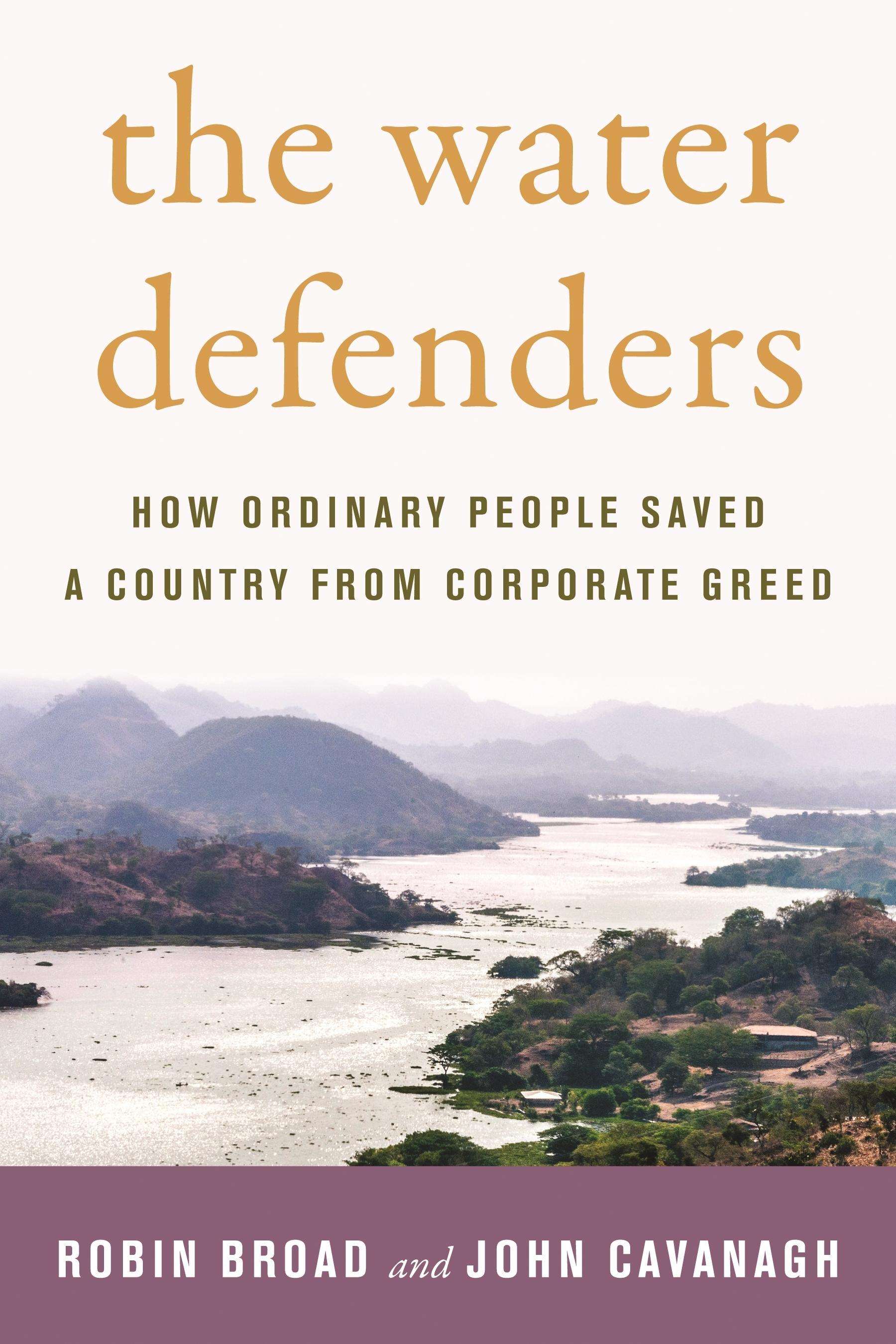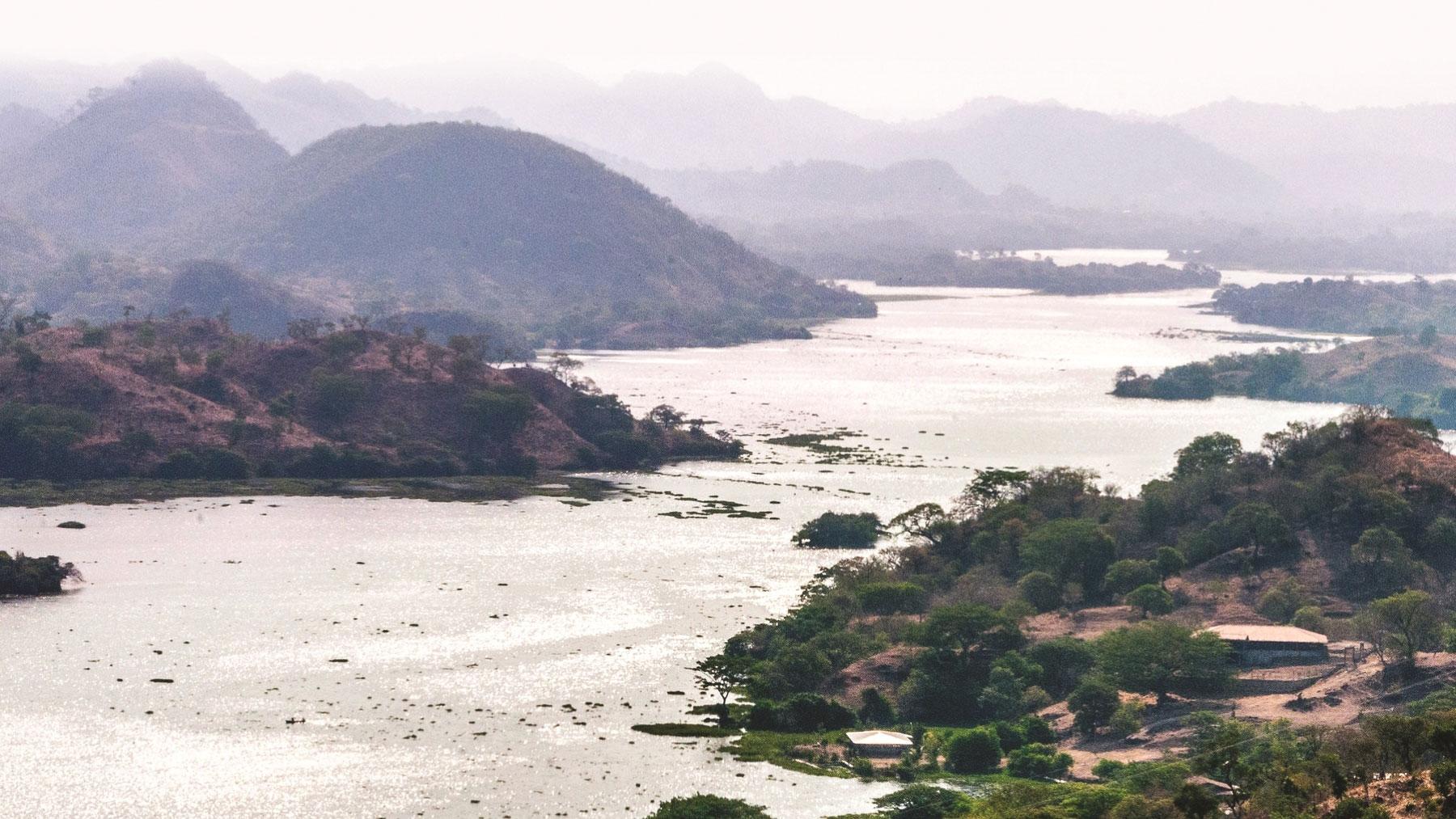An unlikely eco-alliance in postwar El Salvador
El Salvador’s Lempa River, the setting for “Water Defenders: How Ordinary People Saved A Country From Corporate Greed.”
A new book describes how environmental activists in El Salvador brought conservatives and progressives together to institute a nationwide ban on metal mining in 2017.
The World’s Marco Werman spoke with attorney Luis Parada, who led El Salvador’s defense team in a mining lawsuit at the World Bank, and Robin Broad, a co-author of the book, “The Water Defenders: How Ordinary People Saved A Country from Corporate Greed.”
TRANSCRIPT:
Marco Werman:
This is a story about gold and water and activism. El Salvador is dangerously close to running out of clean water. Its rivers have been under threat from international mining companies for decades, companies that are after El Salvador’s gold. But an unlikely alliance came together to stop them. People on opposite sides of the bitter civil war from the 1980s came together to ban metal mining in El Salvador. The inside story is the subject of a new book. “The Water Defenders” coauthor Robin Broad joins us now, along with Luis Parada, the lawyer who fought the Pacific Rim Mining Corp. This mining ban was a huge victory for activists. Some of them, though, paid a heavy price. I’d like, Luis, if you can start us off by telling us about the unsolved murder of one of the environmental activists killed in the lead up to this mining ban. Marcello Rivera was his name. Who was he and how did his story resonate with Salvadorans across the political spectrum?
Luis Parada:
Marcelo Rivera was the first activist that sounded the alarm about the danger of metallic mining in the province of Cabañas, where he was from. And he’s the one that started educating all the other community members about this risk. First, he was disappeared and nobody knew where he was until two weeks later when his body was found. The investigation that the government conducted supposedly led to the finding the people who actually killed them. But, didn’t go beyond to find who may be behind the murders.
Marco Werman:
And Marcelo Rivera, how did his story capture the imagination of Salvadorans across the political spectrum?
Luis Parada:
In a country like El Salvador, which is a very small country, 8,000 square miles, very densely populated with risks of earthquakes, mudslides and a water crisis that already was in place. He was the one that actually led people to travel to Honduras to see the devastation of mining there through another old mining site in El Salvador. And that’s what made people start making other people aware of the risk of mining.
Marco Werman:
So, Robin, in the book you wrote with John Cavanagh, you chronicle the struggle of this group of Salvadoran activists known as the water defenders. These are not people with a lot of resources. Mining companies offered their towns jobs and money, but they were not interested. Why not?
Robin Broad:
Beginning with Marcelo, people very quickly came to understand the jobs and the prosperity that they thought mining would bring were not the key thing that mining would bring. The key thing that mining was going to bring was that the mining companies use cyanide to separate the gold from the rock. That cyanide then gets into the water. El Salvador is a very small country and El Salvador basically has one main river that supplies more than 50% of the water to the country. And for them, as for water defenders, in many other countries, water is life. Water is more precious than gold. So a group of water defenders from all over the country came together in a coalition called La Mesa, the Round Table Against Metallic Mining. These were ordinary people, but they were ordinary people who did extraordinary things. They proved to be amazing researchers. They studied hydrology, they studied geology, they studied mining. They took field trips across that one large river into Honduras where they saw the impact of mining on the environment and on people’s lives and also on their economies.
Marco Werman:
So these water defenders, they reached out to all sorts of Salvadorans as well as forming international alliances. Luis, how is it that legislators from El Salvador’s conservative ARENA [National Republican Alliance] party found common ground with former rebel leaders and Catholic Church officials to ban mining?
Luis Parada
Basically, they, like all the other political parties in El Salvador, became increasingly aware of the risks of mining. They became increasingly aware of where popular opinion was going towards mining. And in particular, it was very important that the member of the ARENA delegation in Congress — which was the largest party represented in Congress — attended one of the many workshops that the National Roundtable Against Metallic Mining organized. And he heard firsthand about the risks, about the use of cyanide, about how you had to go through several tons of rock to get to one gram of gold. And as the head of ARENA delegation told me one day, it was this congressman, Johnny Wright, who convinced the party to ban metallic mining in El Salvador.

So it sounds like it was one lawmaker facing the facts on the ground. Robin, what do you think was key to bringing these former foes together?
Robin Broad:
First of all, the water defenders essentially knocked on the doors of unlikely allies. Most of those people didn’t originally want to see the water defenders, but at a certain point, they listened. We have a stereotype of activists. We think of them as just protesters. The water defenders of El Salvador, were not simply protesting, they were doing it based on the science. And they weren’t simply against mining. In fact, they get angry when you call them against mining. They called themselves pro-water. Their whole movement was for saving the water of El Salvador. Now, that was part of what was effective.
Marco Werman:
So the book recounts two victories for environmental activists in El Salvador. One was getting the national legislature to pass that mining ban. The other was the lawsuit the mining company, Pacific Rim, launched against El Salvador’s government, claiming it had been deprived of its right to start a gold mine. Luis, you helped win that case for El Salvador’s government. How big a surprise was that victory?
Luis Parada:
Well, it was a very hard case. It took seven years from beginning to end. And even when it ended with a victory for El Salvador, there was always the threat that Pacific Rim and its owner of OceanaGold were going to seek annulment of that award, starting another process that could last another two years. So, yes, it was a welcome surprise.
Marco Werman:
So what do you think this experience says about how political change is happening in post-war El Salvador, Luis? I mean, it’s a deeply polarized place, but are the usual alliances scrambled now when it comes to protecting the environment?
Luis Parada:
Well, I think this was a great case to show that when you are working for a common goal, in this case, protecting the environment, protecting water, there should not be any ideological barriers. So I think it shows that when people can focus on a common threat, they can work together past ideological differences they may have had in the past. And I think in the case of El Salvador, it was a very welcome change in mentality from the civil war that lasted 12 years. As people that were working together to defend El Salvador now were probably shooting at each other the decade earlier. So that is great to see how people can come back to work together.
Marco Werman:
Luis Parada led El Salvador’s defense team in a lawsuit against the Pacific Rim Mining Corp. Robin Broad is the author, along with John Cavanagh of “The Water Defenders: How Ordinary People Saved a Country from Corporate Greed.” Robin, Luis, thank you both so much,.
Robin Broad:
Marco, Thank you.
Luis Parada:
Thank you, Marco.
The story you just read is accessible and free to all because thousands of listeners and readers contribute to our nonprofit newsroom. We go deep to bring you the human-centered international reporting that you know you can trust. To do this work and to do it well, we rely on the support of our listeners. If you appreciated our coverage this year, if there was a story that made you pause or a song that moved you, would you consider making a gift to sustain our work through 2024 and beyond?
